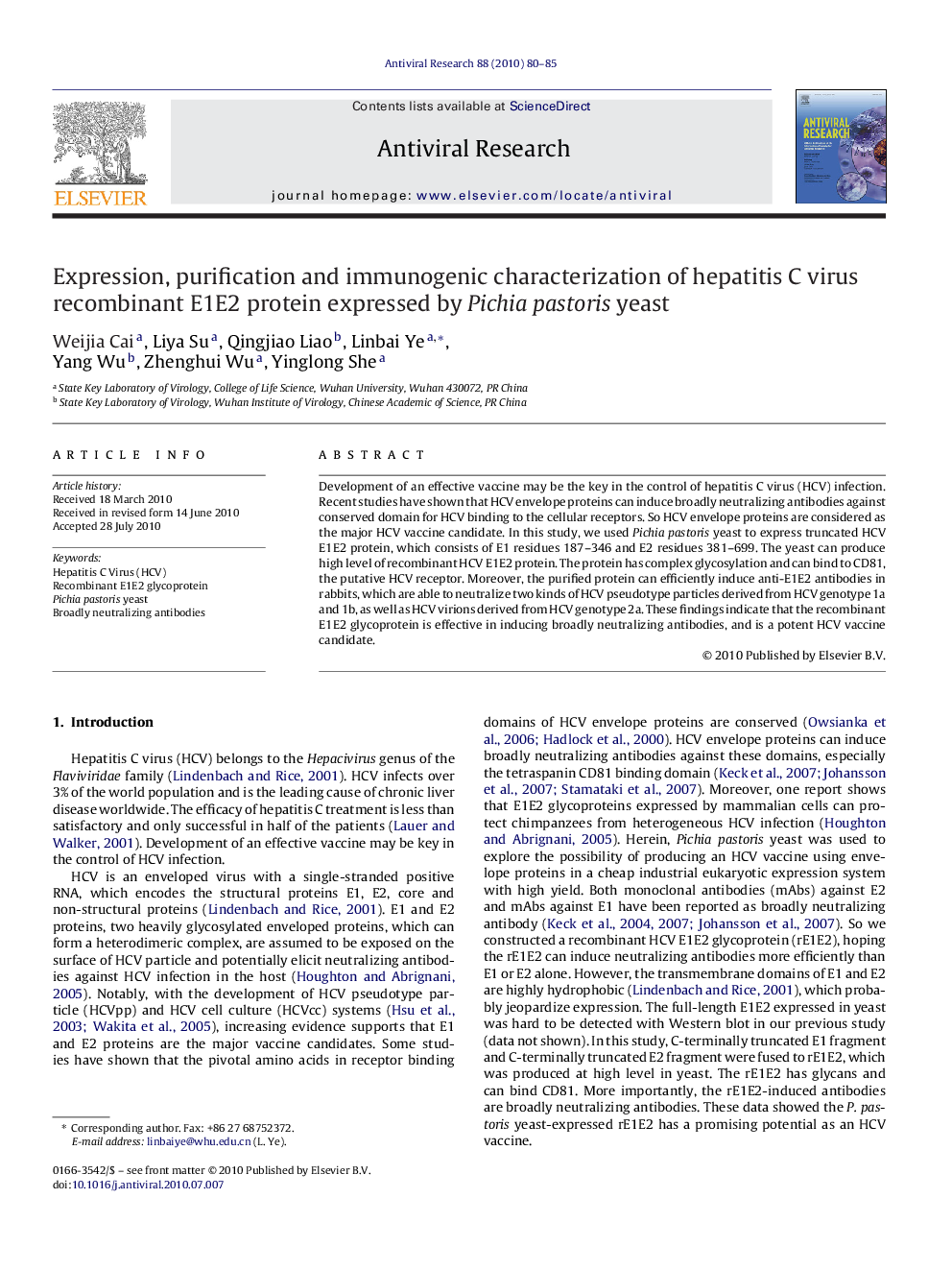| Article ID | Journal | Published Year | Pages | File Type |
|---|---|---|---|---|
| 2510745 | Antiviral Research | 2010 | 6 Pages |
Development of an effective vaccine may be the key in the control of hepatitis C virus (HCV) infection. Recent studies have shown that HCV envelope proteins can induce broadly neutralizing antibodies against conserved domain for HCV binding to the cellular receptors. So HCV envelope proteins are considered as the major HCV vaccine candidate. In this study, we used Pichia pastoris yeast to express truncated HCV E1E2 protein, which consists of E1 residues 187–346 and E2 residues 381–699. The yeast can produce high level of recombinant HCV E1E2 protein. The protein has complex glycosylation and can bind to CD81, the putative HCV receptor. Moreover, the purified protein can efficiently induce anti-E1E2 antibodies in rabbits, which are able to neutralize two kinds of HCV pseudotype particles derived from HCV genotype 1a and 1b, as well as HCV virions derived from HCV genotype 2a. These findings indicate that the recombinant E1E2 glycoprotein is effective in inducing broadly neutralizing antibodies, and is a potent HCV vaccine candidate.
